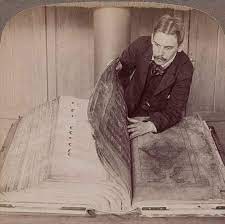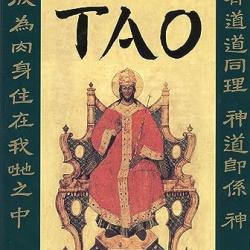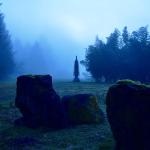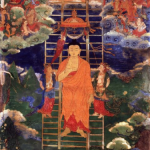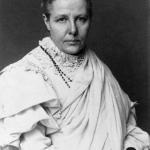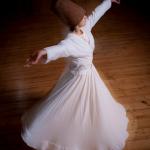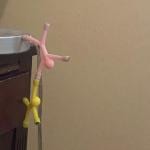TWENTY-THREE ZEN BOOKS
Essential Reading on the Intimate Way
Rolling out, rolling back,
how many scrolls of sutras does it recite?
It dies here; it is born there;
it has several kinds of chapters and verses
Keizan Jokin
When I first started practicing Zen it seemed possible to read pretty much everything on offer in a week or two. Today, every year more books are appearing than can be read. So some sorting becomes necessary. And with that people offer various lists. I’ve done this a few times, myself.
Here I try to offer what I think of as an essential library for the Zen way. While I’ve stopped at twenty-three, I could easily have added ten more. But, this number feels to me as pushing to the outer limits of what might be a reasonable list. A stretch, perhaps, but not beyond the reach of the seriously interested. This very much is an introduction to the Zen that shapes my life. It misses important writers and schools, for instance the enormous offerings from the Korean Son tradition are absent here. There are also contemporary authors I am embarrassed are not here. But, I had to stop somewhere, and, as I said, this pretty closely maps the Zen I learned and practice and teach. So, with those cautions and caveats, I hope it proves of use to you.
For Buddhist fundamentals I recommend Karen Armstrong’s biography Buddha and Walpola Rahula’s survey What the Buddha Taught. The first is an accessible read and the second, while controversial in some circles for modernist inclinations is clean and straightforward. After that I recommend Barbara O’Brien’s Circle of the Way, which offers a history of Zen as it arises out of the larger Buddhist community, and begins to differentiate itself.
For a sense our Zen spirituality as a living thing I recommend reading the Platform Sutra of the Sixth Ancestor, which lays out our founding story as a lineage path as well as showing the fracture lines within our tradition right from the beginning. Red Pine’s version is particularly accessible.
Robert Aitken’s Taking the Path of Zen represents the Sanbo Zen style which rests on a Soto foundation but introduces koan introspection as well as an emphasis on lay practice. This is Zen as I live and practice. I cannot recommend Aitken Roshi’s books highly enough. And this is the place to start.
Similarly, Philip Kapleau’s Three Pillars of Zen is very important but of a complicated parentage. Its strong emphasis on koan introspection and awakening has proven controversial, revealing some of the continuing divides of emphasis within the Zen schools.
Shunryu Suzuki’s Zen Mind, Beginner’s Mind is not an introduction but once one has began the practice it can prove useful. It has been called the first English language “Zen classic.” Which means it is most commonly purchased, displayed, but often remains unread.
My Introduction to Zen Koans would probably be more accurately titled an “Introduction to Zen meditation and Koans.” There are several important anthologies of writings on Zen meditation. A particularly good one is John Daido Loori’s Art of Just Sitting. It has companion volumes, Sitting With Koans also edited by the roshi and The Book of Mu, edited by Melissa Myozen Blacker and myself.
I strongly recommend reading into the precepts as well. There is a small but growing literature. That said I think if one is going to read a single book on Zen’s precepts, I would recommend Robert Aitken’s Mind of Clover.
There are two classic Zen teachers I feel anyone wishing to be conversant with Zen’s teachings, certainly within the Japanese inheritance should have at least a passing familiarity with, Eihei Dogen and Hakuin Ekaku. I advise a simple selected anthology of the prolific Eihei Dogen, perhaps Moon in a Dewdrop. A pretty good secondary source for reading Dogen might be Hee-Jin Kim’s Eihei Dogen: Mystical Realist. For Hakuin, his autobiographical Wild Ivy and the Essential Teachings of Zen Master Hakuin both by Norman Waddell are worth a read.
For anthologies of koan literature, a truly wonderful book to start with would be Robert Aitken’s Gateless Barrier. Two contemporary collections that are worth the read are Florence Caplow & Susan Moon’s Hidden Lamp and especially Eve Marko & Wendy Egyoku Nakao’s Book of Householder Koans.
Among contemporary teachers, I recommend John Tarrant’s Light Inside the Dark (I cannot say how important this book was for me), Shohaku Okumura’s Living by Vow which digs into some central Zen texts, and Barry Magid’s Ordinary Mind as a really good start toward the whole field of psychology and Zen. And while not Zen particularly raising many of the immediate challenges within the Western and mostly convert Zen and more broadly Western Buddhist communities, angel Kyodo Williams & Rod Owens’ Radical Dharma.
If this list generates any merit, opens the way for anyone, or deepens their commitment, I gratefully dedicate it to the authors here with gratitude for their generosity of spirit, as well as their direct pointing to the great mystery.


